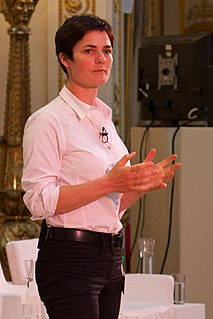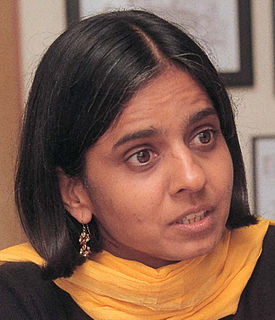A Quote by Ellen MacArthur
The linear 'Take - Make - Dispose' system, which depletes natural resources and generates waste, is deeply flawed and can be productively replaced by a restorative model in which waste does not exist as such but is only food for the next cycle
Related Quotes
I was really surprised to learn that there is no food date label standardization, which contributes significantly to why we waste so much food, which generates methane emissions, a powerful greenhouse gas, in landfill, and means that we are using lots of land, water, fertilizer and energy to produce food that no one eats.
After all, does it make sense to be chucking things like glass, paper, cardboard, wood, metals, plastics, and food waste into holes in the ground? No, it doesn't; especially when someone will pay you good money to take them off your hands or, in the case of wood and food waste, when you can turn them into renewable energy.
Food security is an authentically human requirement. Guaranteeing it for present and future generations also means safeguarding ourselves against the uncontrolled exploitation of natural resources. Indeed, the process of consumption and waste seems to overlook any concern for ... biodiversity, which is so important for agriculture.
If you look into the way that materials are used in an ecological system you'll notice that you'll find that there is no waste. The waste of one organism becomes food for another and everything's recycled in an ecological system whereas in our human built environment there's a throughput system. We use something then we throw it away... We have to imitate nature and try to re-use everything we make as human beings or recycle them - when we cannot re-use or recycle them we should try to reintegrate them back into the natural environment.
The Lockean assumption that if we put our labor to it then it becomes our own is totally fallacious. We have to figure out how to leave things alone, and build an economic system that's not built on a linear model, but instead on a cyclical model, because that's the natural world - it's cyclical and not linear. That is going to take a lot of transformation.
Why do we send valuable items like aluminium and food waste to landfill when we can turn them into new cans and renewable energy? Why use more resources than we need to in manufacturing? We must now work together to build a zero waste nation - where we reduce the resources we use, reuse and recycle all that we can and only landfill things that have absolutely no other use






























